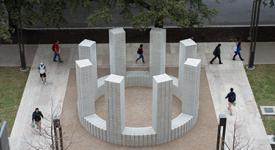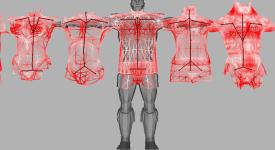Scientists Afflict Computers with Schizophrenia to Better Understand the Human Brain
05/05/2011 - AUSTIN, Texas—Computer networks that can’t forget fast enough can show symptoms of a kind of virtual schizophrenia, giving researchers further clues to the inner workings of schizophrenic brains, researchers at The University of Texas at Austin and Yale University have found. The researchers used a virtual computer model, or “neural network,” to simulate the excessive release of dopamine in the brain. They found that the network recalled memories in a distinctly schizophrenic-like fashion.





